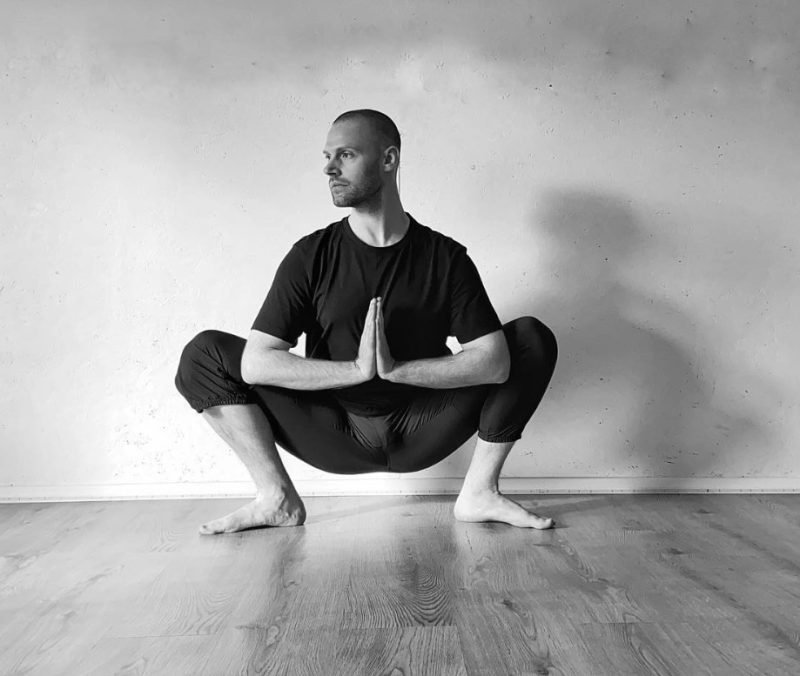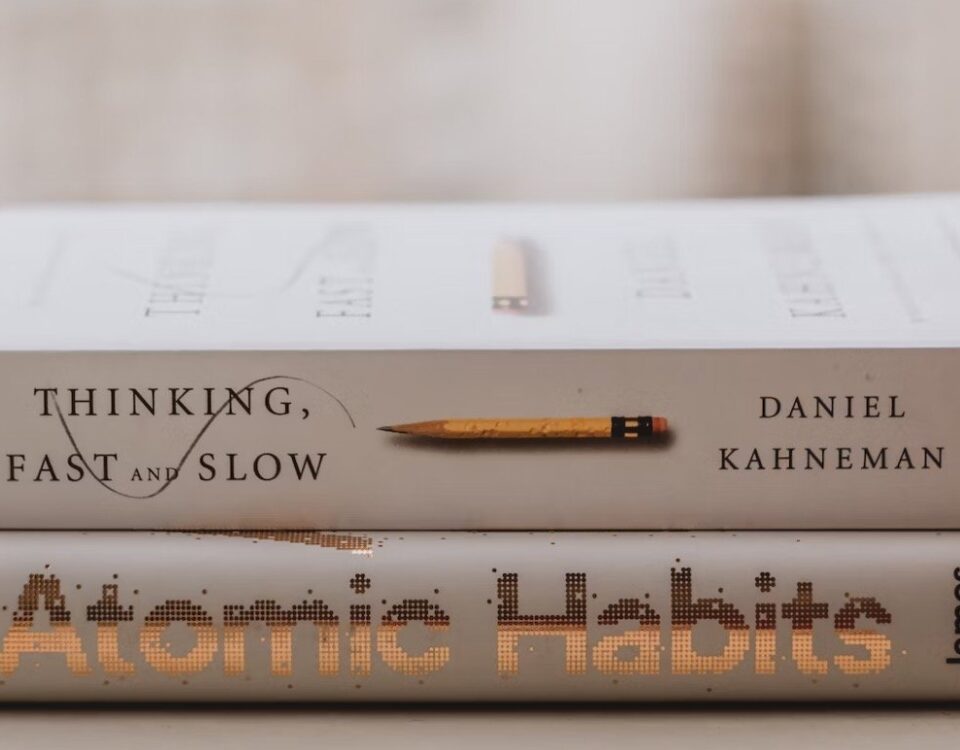70 Good Habits That Improve Your Life NOW
Good daily habits help you in all aspects of life. From your career to your mental health and overall well-being.
Changing even the smallest habits can lead to positive results on many fronts.
The question is, how do you know which daily habits to change? What will have the biggest impact for you personally?
Good daily habits –where to start?
If you are anything like me, you probably have a lot of things you would like to change to improve your life. We could all be better at something, right?
No matter who you are, you have habits in your life that you want to improve or start.
How do you decide which daily habits to focus on?
My recommendation is to try one new habit every month.
From the list below, you will see that each of these good daily habits are actually quite achievable on their own.
Tip:Make sure the habit you focus on each month is good for you –it will improve your life, even in a small way.
To make this relevant to many different types of people, we cover 70 different good habits that improve your life.
The ultimate list of 70 daily habits to improve your life
Habits for health and well-being

1. Go to sleep at the same time every night.
Use this opportunity to create a relaxed sleep routine.
2. Use a food diary to track your daily diet and exercise.
I prefer a paper journal to an app because I am not a fan of calorie tracking.
3. Make time for rest
You can’t run on an empty stomach, so set aside time for lunch and breaks.
4. Walk daily.
It can be hard to take 10,000 steps a day when you work from home or are traveling by car, but get out there and walk.
Walking is a great stress reliever and can help you reset your mind and practice mindfulness.
5. Meal prep
If you can’t prepare your dinner, at least prepare your lunch and snacks. This helps if you don’t have time and need to grab something to eat quickly.
Also, try to start preparing dinner at lunch (if you can). This is great for people who work from home.
6. Drink more water.
For every drink you drink that is not water, compensate with a large glass of water.
7. Stretch in the morning or evening.
This is a great way to prepare for the day or relax in the evening.
8. Make a healthy smoothie every day.
Try new recipes to find different ways to incorporate new fruits and vegetables into your smoothie.
9. Think about the environment and how it affects your health.
Start shopping eco-friendly. This will benefit your health in many ways and it is also kinder to the environment.
10. Eat one plant-based meal every day.
A plant-based diet has been proven to be good for your health and the environment. Aim for a completely plant-based lunch or dinner.
Habits for self-care

11. Start a morning routine for self-care.
Starting the day right has a huge impact on everything you do. Start the day with stretching, drinking water, meditation, etc.
12. Take some time for yourself.
Find ways to spend some time alone each day. In that time, do what you love, no matter how big or small.
13. Start saying no and get good at this!
Many of us want to be accepted and liked, and part of that means we hate saying no. This means we do things that can make us exhausted and even unhappy.
By saying no, you can create time for important things in life and create a better balance for yourself.
14. Write in a journal.
There are so many positive benefits to daily journaling –getting creative, focusing on gratitude, achieving your goals, focusing on positivity.
15. Take a relaxing bath or shower.
The perfect time to do this can be in the evening before bed. Try to make this time extra cozy with some essential oils, candles and even relaxing music.
16. Spend 30 minutes on something you are passionate about.
Reading, exercising, listening to music, gardening –you choose.
17. Ask for help from your family.
If you feel like you are drowning, this is really important to make sure your family members are assisting daily.
18. Discover the simple pleasures in life.
By finding simple things in life that bring you joy, you take control of your daily happiness.
Focusing on small, easily achievable things that make you feel good is a recipe for positivity and a good life. Give it a try.
19. Eat healthy.
Make sure you eat at least one really healthy meal that makes you feel good.
20. Find time for your faith.
Read, pray, write in a journal, reflect.
Habits for your mental health

21. Stop overthinking.
Thinking too much about stressful situations can take over your happiness. This is also called rumination, which is having repetitive negative thoughts.
Learn more about ruminating here and get tips on how to stop overthinking.
22. Practice self-love affirmations.
Practicing self-love daily is a wonderful way to take care of yourself, and one of the best ways to do this is with self-love affirmations.
23. Do what makes you feel good.
This is your chance to take a step back from your current daily habits and see if you are spending time doing something you love, something that makes you feel good.
No matter what this is, it is unique to you –but it is important that you spend a little time on this every day.
24. Go outside.
There are so many wonderful health benefits associated with spending time outdoors.
See if you can go outside every day.
- Breathe in the fresh air
- Get a little exercise
- Enjoy the environment around you
- Watch Mother Nature –the chirping of the children, the leaves on the trees dancing in the wind
25. Use a tuning meter.
Using a mood meter is good for understanding what triggers you to feel a certain way.
Once you know what makes you feel good, do more of this. If you see a pattern of things that make you feel down, try to avoid those situations.
26. Start a gratitude journal.
Practicing gratitude daily really helps to change your outlook on life. No matter who you are or what your current situation is, there are so many things to be grateful for in life.
If you can focus on the habit of daily gratitude, this may be exactly what you need as support during difficult times.
Writing prompts to help you practice gratitude for a better life.
27. Create a go-to “feel better routine”.
That way, you already know what makes you feel a little better when you need to reduce stress quickly.
Some examples:
- A cup of tea
- Walking around the block
- Listening to upbeat music
- Calling your best friend
Make a list of things that make you feel really good and keep that list handy when you need it most.
28. Speak out.
If you feel down or want to discuss a problem, talk about it.
Keeping things that are important to you in front of you is unhealthy and can accumulate over time.
29. Seek affection.
Affection looks different for everyone, but we all need it.
It can be a hug with your dog, your children, your spouse, but make sure you get it, even if you have to ask for it. (This is especially important for people who really need physical touch).
30. Start a new hobby.
Finding something new that you are passionate about can give you a new lease on life. Here are some ideas to inspire you.
- Modern calligraphy
- Watercolor
- Geocaching
- Gardening
- Hook
- Photography
- Blogging –sign up for my free course on how to start a blog!
- Scrapbooking
- Flower arranging
- Hiking
- Kanoën
- DIY essential oil recipes
- Pottery
- Baking
- Chess
There are SO MANY things you can do! So, think about what cheers you up and try something new. It’s so good for your mind and soul.
31. Call someone you love.
Do this every day to let the people who are important in your life know that you love them.
32. Tell your spouse something sweet.
There are so many ways you can do this. Some examples:
- Compliment them on how they look or on something they have accomplished
- Thank them for their efforts for something they have done
- Whisper romantic (or naughty!) sweet nothings
- Say I love you
- Sing lyrics to them
33. Say good morning.
When taking a daily walk or running errands, say good morning or hello to people you pass.
We move so fast these days and when you forget that simple, kind gestures to others can really make someone’s day.
Of course, some people will think you are weird, but honestly –who cares. What matters is that you pass on positivity to others and many people will appreciate that.
(And yes, you can do this even if you live in the city)!
34. Make daily efforts to look and feel good.
You can do this for yourself and for your partner. Even if you work from home, make sure you are dressed and refreshed every day.
35. Be a good listener.
Being an active listener in conversations can really improve your relationships with others.
Focus on being involved when others are talking. Ask questions, show interest.
36. Don’t complain about a problem –find a solution.
People who constantly complain but never do anything to improve a situation can be difficult to deal with.
If you think this could be you, don’t be too hard on yourself, but instead think about how you can find a solution to a problem you have.
Try to take the positive path.
37. Be affectionate with your partner.
This goes without saying, but let’s face it –some people are not as affectionate as others.
However, it is important to make sure you show affection every day.
Even if you are not an affectionate person, your partner may be, and it could very well be that he or she needs this to be happy.
So, hold each other’s hand, kiss him or her on the forehead, whisper that you love him or her, prioritize love.
38. Text someone you care about.
We are all super busy, but there is always time to send a message to someone you care about.
- Send them a funny meme
- Ask them how they are doing
- Tell them something you like about them.
Life is short, so more interactions like this can be your key to happiness.
39. Compliment your friends and family.
Sometimes people just need to hear that they matter, that their efforts are recognized, that they are doing a good job.
Your loved ones want to be noticed by you. So take your time and compliment them.
- Tell your children that you are proud of the hard work they do in school.
- Let your husband or wife know that his training has paid off
- Tell your mother how much you appreciate that she taught you something
- And, tell your dog “good boy”!
40. Make time for people when they need you.
Making time for people also means giving them your full attention.
These can be your children, your spouse, your friends. (Now you can’t always say yes to everyone, but make it a habit to be there for the people who really matter in your life).
Habits for organization

41. Do one thing at a time.
In recent years we have learned that multitasking is not the way to go, yet many of us still do it every day.
Multitasking actually makes you less productive, so instead focus on completing one thing at a time and you will find that you accomplish more in a day.
42. Write a daily to-do list that is achievable and stick to it.
Be realistic about what you can complete in a day.
If you are constantly writing to-do lists and not completing them, it will cause you unnecessary stress. It will also make you less productive.
Instead, consider how long each task you add to your daily list will take. Also know that it is 100% okay to add only 3 things to your list in a day –you don’t have to overdo it.
Listen to this podcast episode (or read the blog post) from my friend (and productivity expert) Paula on the best way to write a to-do list.
43. Daily cleanup.
You can start the habit of cleaning up daily as part of a 30-day challenge.
Pick one (small) area each day to clean up and get to work on it! Some examples:
- Kitchen Cabinet
- Office drawer
- Storage box
- Household paperwork (bills, documents)
- Garden shed
This all builds up and by the end of the 30 days you will find that you have most of your house in order.
Once you have cleaned up all the important areas of your home, it will be easier to maintain it on a daily basis.
44. Create a place for everything.
If an object does not have a home, create one. You can combine this habit with the challenge above.
45. Handle mail (and bills) as soon as you receive them.
Pay, file, shred, etc. That way you won’t have to deal with a big pile of paper clutter later.
46. When you leave a room, pick it up!
Make sure your children and family are included in this.
Getting up from the couch? Take your coffee cup with you! Leaving the laundry room? Take those clothes home with you (and make sure your family puts theirs away, too, of course).
47. Set reminders and/or alarms.
Setting alarms and reminders for important meetings, appointments and tasks is really important to stay organized.
I recommend setting an alarm/reminder 15 minutes before your task is due to begin, so you can finish what you are working on, grab a snack (or whatever) and be ready to start at the right time.
48. Don’t put off important tasks that stress you out.
You know what I’m talking about –doing your taxes, maintaining your home, paying bills.
If the task seems too big, make a list of mini-items you can complete to get this job done.
49. Write everything down.
You can do this in a special notebook or an online tool such as Trello.
Make sure that when something important comes to mind, you record it;and more importantly, that you know where you recorded this information so you can refer to it later.
50. Set a timer and take on the clock.
This is such a great way to complete a task without distractions.
You can use this method for projects, writing, cleaning up the kitchen quickly or clearing out your inbox.
Habits for money

51. Never carry debt on your credit card.
To do this, you really need to stick to a budget and never buy big things you can’t afford on credit.
It’s fine to use a credit card (especially if you get points), but make sure you can pay it off each month.
Tip:If you get paid twice a month, pay the current balance on payday –that way you’re always ahead.
52. Provide an automatic savings plan
The amount you put away each month doesn’t really matter. What matters is that you make a habit of putting money away.
Set up an automatic savings account that withdraws a set amount from another account every month (or every paycheck).
Even if you only put away €35 a month, that’s €415 in a year. Once you get used to saving money automatically, consider increasing the amount slightly.
53. Save for big purchases.
If you want a new sofa, dining room table or vacation –save the money.
Also, make sure you never use a high-interest credit card for these purchases. Paying interest for something you can save for is a waste.
54. Buy only what you need.
Do you really need that new dress? A new dish? A new car?
Regardless of the price, always ask yourself if what you are going to buy is something you really need and want?
Tip:If you find something you want to buy, wait 7 days and then decide. Or if there is a sale, come back before the end of the sale period and decide then.
55. Plan your meals and use all your food.
Meal planning can be a great way to save money and eat healthier. Also, make it a habit to eat everything in your refrigerator. Too often good food is wasted.
You can be more conscious about your food and think about…
- The hard work a farmer put into growing those carrots in your refrigerator
- Animals who lost their lives to feed us humans
- People who worked hard (from farm to your table) to give you this food
- People in your own town or village who don’t have food on the table tonight
- When you look at food this way –it is very hard to throw it away. So, use your food!
56. Start saving for retirement early.
It’s best to start putting money into retirement when you’re in your twenties, but if you haven’t already, start now.
To make it a daily habit, see if you can set aside a small amount each day. What will this yield each month?
Even a little bit of saving for retirement makes a difference in the long run, especially if you start early.
57. Buy a house instead of renting.
If you can afford it, buy a house instead of renting. This way you put money into your future.
If you are unable to buy a house, start saving and also consider other ways to get into the real estate market (buy an apartment, move to a more affordable neighborhood).
58. Provide a “rainy day”fund.
Saving money for a rainy day may sound cliché, but I promise you will need this. We all have rainy days coming (hello pandemic), so prepare for them. It’s not a matter of “if”but “when.
59. Make a monthly household budget and keep track of your expenses.
Start with your fixed expenses (bills, rent/mortgage) and then add your variable expenses (food, entertainment, personal needs).
Try setting a budget for one month and see how it works for you. You can always make adjustments as needed.
60. Always negotiate your bills.
You’ll be surprised how much you can save if you just ask!
I love negotiating, but for those who hate this task, just asking “is this the best price?”or “is this the best package you have”can save you a lot!
Try this with your cable or wireless provider to begin with.
Good daily habits for work and career
61. Practice blocking time to complete one task at a time.
There are many ways to block out your day, such as blocking out time in a planner. You simply assign a block of time to a particular task –for example:9-9:30 a.m. e-mail, 10-11 a.m. write a project outline.
To complement this, I like to set a timer to help me block out time and have a more balanced day.
62. Clean up your desk at the end of each day.
Don’t just remove everything you won’t need the next day, but also put away the things you do need. This makes it easier to get right to work the next day.
63. Determine your most productive moment of the day.
Many people think the morning is the most productive part of the day, but it really depends on the type of work you do.
If you are a creative person and need to write or design something, early afternoon may be your best time.
However, if you have more analytical work to do, such as updating an excel spreadsheet or working on a budget, the morning may be better for this.
Tip:Think about your work habits and try different times of day for different types of tasks.
64. Build good relationships.
Focus on building strong relationships with colleagues, business partners and customers.
When people know each other on a personal level, working relationships always improve.
65. Make quarterly SMART goals.
Make sure you prioritize these goals over everything else.
SMART stands for:
- Specifiek –The goal should be very specific
- Measurable –Determine when you will know you have achieved this goal. How will you measure it?
- Feasible –Is the goal realistic? Is it possible to achieve this goal?
- Relevant –Will this goal help you in your current career/work?
- Time-bound –Creating a timeline that you stick to will help you achieve this goal.
66. Always show up 100% prepared.
Whether you work for yourself or for a company, always show up 100% prepared.
- Go to work 10 minutes earlier
- Make sure you know what projects, tasks and appointments you have for the day and be prepared for them.
When you show that you are prepared, you communicate that you take your work seriously and are dedicated to your task.
67. Be a good listener.
Listen to your boss, your customers, colleagues, co-workers.
If people you work with know you are a good listener, they see you as a team player, a positive person to work with and someone who supports them.
This is an extremely important skill to hone no matter what kind of work you do.
68. Be positive even if you don’t always feel it.
In every situation at work and in your career, you can choose how to respond to events.
It can be easy to react negatively sometimes, but think about how you can be positive in every situation.
69. Be kind and respectful to everyone around you.
This also applies to the people you don’t love. Be the better person and show professionalism in all situations.
70. Take criticism well.
All types of feedback help you grow in your business and career, no matter what you do for a living.
Take feedback and act on it. This feedback will help you achieve your goals and ultimately make you more money.
How to start good habits
Now that you’ve inspired some good daily habits to try, here are a few tips to make it happen.
Write down the habit
Either in a journal, your phone, a sticky bill on the refrigerator. Make sure that wherever you write down this new habit, you see it as a reminder throughout the day.
Use a habit tracker
This is a great way to stay on top of your new daily habit.
Try habit stacking
Depending on the habit, you can try habit stacking (the process of adding a new habit to something you’re already doing).
Examples:
- Do squats while brushing your teeth
- Write a daily to-do list while your morning tea is brewing
- Listen to an educational podcast during your daily walk
- Find other ways to incorporate new daily habits into your routine
If your new habit is a social skill, such as listening better or being more positive in your day, start writing down scenarios in which you can improve these daily habits.
For example:
If you want to be more positive every day, think about what you can do (or focus on) when you feel negativity creeping in. Check out this list of simple pleasures in life to give you inspiration.
If you want to be a better listener, write down steps you will take during a conversation –for example, practice eye contact, put away distractions such as your phone, ask questions and show genuine interest.
Just get started!
Yes, starting a new habit on a Monday or the first day of the month is a great idea, but this should not stop you from starting your new daily habit today.
Let’s put an end to this –no excuses, just start!
What good daily habits will you try?
Share it below in the comments!






